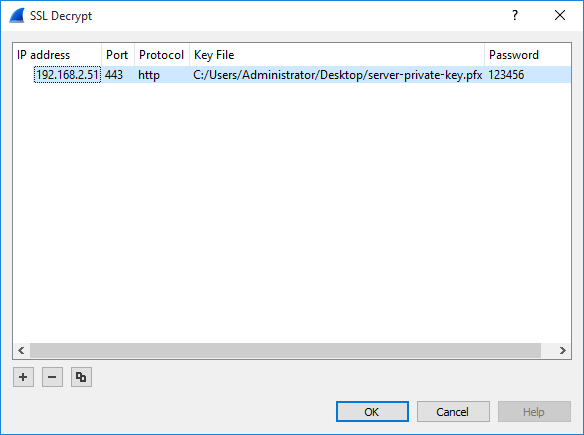
In Wireshark, select Edit > Preferences > Protocols > SSL > (Pre)-Master-Secret log filenameĪnd select the exported Session Keys and You’ll now have visibility of the same decrypted traffic, without using the Private key directly. This file can be used to decrypt the trace, in place of the private key.ĥ. Open another Wireshark session, and attempt to use the Session keys you just exported to decrypt the same trace (session). In Wireshark, select File > Export SSL Session Keys,Īnd save the file somewhere… You should now have a file with “RSA Session-ID: Master-Key: ”. Export the Session Keys to let a thrid-party have access to the data included in the network trace, without sharing the Private Key with anyone (for security reasons) The SSL traffic should be decrypted by now and evrything will be displayed in open text…Ĥ. Download Wireshark and open your trace:Īs you see here, all trafic in encrypted (SSL)ģ. Select >Edit > Preferences > Protocols > SSL > RSA Keys list > Edit, to decrypt the trace (using the private key) in Wireshark:Įnter IP of your Netscaler AGVIP, Port 443, http as a protocol and Link to your Certificate key… Then hit “Apply”

In order to do this, find the CLIENT_HELLO frames of the sessions of interest in Wireshark and match the Random bytes to the lines in the sslkeyfile.log.2. This will only allow the chosen sessions to be decrypted by the third party. If you need to limit the scope of the information given to a third-party for debugging, you can only copy a subset of the lines from the file. The sslkeyfile.log will contain the master secret for all sessions inbound and outbound from DataPower.

The certificate only holds the public key so it wouldnt be of much use to you. If you dont control the webserver you shouldnt be able to obtain it. Note: only sessions that have captured the full SSL keyexchange consisting of CLIENT_HELLO and SERVER_HELLO can be properly decrypted. The private key is private to the webserver. If packets are not decrypting properly, you can enable a debug output file under “Preferences -> Protocols -> SSL”: Now load the packet capture file using “File -> Open” to see that the TLS sessions containing a complete TLS handshake are now decrypted automatically. If you’re using a non-standard port for HTTPS, update “Preferences -> Protocols -> HTTP” as shown below: In the (Pre)-Master-Secret log filename input, specify the location of the sslkeyfile.log copied from DataPower:

Open Wireshark and from the menu select “Preferences -> Protocols -> SSL”. Stop the packet capture and copy logtemp:///sslkeyfile.log and temporary:///capture.pcap to a system running Wireshark: Once the packet capture is started the system will begin logging the private master secret information to logtemp:///sslkeyfile.log System administrators have the option to enable this feature when starting a network packet capture:


 0 kommentar(er)
0 kommentar(er)
